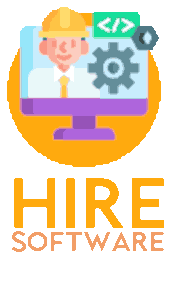Hire Software Engineers for a Remote Team to break geographical barriers and tap into global expertise. Discover the keys to successful remote hiring here.
The demand for talented software engineers continues to grow, and many companies are turning to remote teams to access a wider pool of talent. However, hiring software engineers for a remote team requires a different approach than traditional hiring methods.
Key Takeaways:
- Hiring software engineers for a remote team requires a different approach than traditional hiring methods
- To build a successful remote team, it is important to identify your team’s specific needs and create clear job descriptions and requirements
- Effective remote hiring strategies include leveraging online platforms and networks, conducting rigorous interviewing and assessment, and offering competitive compensation and incentives
- To manage your remote team for success, establish clear communication and collaboration channels, provide ongoing support, and utilize team management best practices
Advantages of Hiring Remote Software Engineers
Remote software engineering teams offer various advantages over traditional in-house teams. Firstly, they allow access to a larger talent pool, as geographical limitations are no longer a concern. This results in a wider range of experience, skills, and perspectives that can be brought to projects.
Secondly, remote teams allow for greater flexibility in terms of project management and timelines. With team members in different time zones, it is possible to have round-the-clock productivity, resulting in quicker project completion times.
Thirdly, remote teams offer cost savings in terms of office space, equipment, and other associated expenses. This reduction in overheads can allow companies to invest more in their teams, providing better compensation packages and incentives to attract and retain top talent.
Finally, remote teams offer the opportunity for team members to achieve a better work-life balance. By avoiding long commutes and being able to work from any location, team members can enjoy greater flexibility and autonomy over their working hours.
Identify Your Remote Team’s Specific Needs
Before beginning the search for software engineers to join your remote team, it is crucial to identify and define your team’s specific needs. This process helps to ensure that you find candidates who are the best fit for your team’s projects and goals.
Start by considering the skills and experience that are required for your remote software engineering team. Determine the level of expertise necessary for each position and the technical skills that are essential for the role. Additionally, consider the soft skills that are valuable for a remote team member, such as communication, collaboration, and self-motivation.
It is also important to define the scope of your team’s projects and the timelines for each task. This information will help you to identify the workload and project management needs of your team, as well as any specific software tools or platforms necessary for success.
To gain a full understanding of your remote team’s needs, consider communicating with current team members to gather any additional insights and perspectives. This collaborative approach can help to create a clear and comprehensive understanding of the specific needs of your remote software engineering team.
Create Clear Job Descriptions and Requirements

One of the most critical aspects of hiring software engineers for remote teams is creating clear and comprehensive job descriptions and requirements. Without these, it can be challenging to find the right candidates with the skills and experience needed for your projects.
When developing job descriptions, it’s important to include detailed information about the position’s responsibilities, required skills and qualifications, as well as any necessary certifications or degrees. Additionally, it’s helpful to outline the expectations for work hours, communication channels, and collaboration tools.
It’s also essential to define the specific requirements for remote work, such as a reliable internet connection, access to necessary hardware and software, and a suitable workspace. This information can help you identify candidates who are well-equipped to handle the unique challenges of working remotely.
By creating clear job descriptions and requirements, you can attract the right talent and ensure that all candidates understand the expectations and responsibilities of the role. This can help streamline the hiring process and ensure that all team members are aligned and working towards a shared goal.
Effective Remote Hiring Strategies – Hire Software Engineers for a Remote Team
When it comes to hiring software engineers for remote teams, there are several strategies that can help you streamline the process and attract top talent. Here are some effective remote hiring strategies to consider:
1. Use Multiple Channels to Source Candidates
Don’t limit yourself to just one platform or network when sourcing candidates for remote software engineering positions. Instead, use multiple channels, such as LinkedIn, job boards, and referrals, to cast a wider net and increase your chances of finding the right fit for your team.
2. Conduct Thorough Pre-Screening
Before interviewing candidates, conduct thorough pre-screening to ensure they meet your job requirements and have the necessary skills and experience. This can include reviewing resumes, portfolios, and work samples, as well as administering skills tests or coding challenges.
3. Leverage Video Interviews
Video interviews are a great way to assess candidates’ communication skills and get a better sense of their personality and work style. Consider using video interviews as part of your remote hiring process to help you make more informed decisions.
4. Communicate Clearly and Consistently
Communication is key when hiring remote software engineers. Make sure to communicate clearly and consistently with candidates throughout the hiring process, providing them with timely updates and feedback. This will help build trust and establish a positive relationship with potential hires.
5. Collaborate with Your Existing Team
When hiring for a remote team, it’s important to involve your existing team in the hiring process. This can include having them review resumes and portfolios, participate in interviews, and give feedback on candidates. By involving your existing team, you can ensure a more cohesive and collaborative work environment.
6. Consider Cultural Fit
When hiring for a remote team, it’s important to consider cultural fit in addition to technical skills and experience. Look for candidates who share your company’s values and work ethic, and who are comfortable working in a remote environment. This will help ensure a stronger team dynamic and better overall work experience for everyone.
Leverage Online Platforms and Networks
One of the major advantages of remote work is the ability to hire from a global pool of talent. To find top software engineering talent for your remote team, you can leverage various online platforms and networks.
LinkedIn is a popular platform for professional networking, where you can post job openings and connect with potential candidates. In addition, GitHub is a platform where developers showcase their work and collaborate with other developers, providing an opportunity to discover top talent.
Another option is online communities and forums dedicated to software engineering and remote work, such as Reddit’s r/remotejs and Stack Overflow’s remote jobs section.
When searching for candidates on online platforms and networks, it is important to be clear about your remote team’s specific needs and job requirements. This will ensure that you attract candidates who are the right fit for your projects.
Ultimately, leveraging online platforms and networks can help you find top talent from anywhere in the world, expanding your remote team’s capabilities and strengthening your overall business.
Conduct Rigorous Interviewing and Assessment
Interviews and assessments are crucial for identifying the candidates who possess the necessary skills and experience to thrive in your remote software engineering team. By conducting rigorous assessments, you can evaluate the technical competence, problem-solving ability, and communication skills of potential team members.
It’s important to develop a structured and systematic approach to interviewing and assessment. Consider creating a list of questions that cover various aspects of the role, from technical expertise to communication and collaboration. You may also want to include practical exercises or coding challenges to test the candidates’ skills in action.
When conducting interviews, it’s important to create a comfortable and relaxed environment for the candidate. Ensure that you have a stable internet connection, clear audio and video, and a quiet background to minimize distractions. You may also want to use a video conferencing platform that allows you to share your screen, collaborate in real time, and record the interview for future reference.
After the interview, it’s important to provide timely feedback to the candidate and keep them informed about the next steps in the hiring process. This helps to maintain a positive candidate experience and ensures that you don’t lose top talent due to slow or unclear communication.
Online Assessment Tools – Hire Software Engineers for a Remote Team
There are many online assessment tools available that can help you evaluate the technical proficiency of software engineering candidates. These tools often feature coding challenges, quizzes, and simulations that test the candidates’ skills in a simulated coding environment.
| Assessment Tool | Features |
|---|---|
| HackerRank | Coding challenges, contests, and assessments for various software engineering roles and skill levels. |
| CodeSignal | Real-world coding scenarios, technical and soft skill assessments, and interview preparation tools. |
| TestDome | Coding and problem-solving skills tests for various programming languages, frameworks, and domains. |
These tools can save you time and effort by automating the assessment process and providing objective and standardized results. However, keep in mind that they are not foolproof and may not capture all aspects of a candidate’s skills and experience. They should be used in conjunction with other evaluation methods, such as interviews, references, and portfolio reviews.
Establish Clear Communication and Collaboration Channels
Effective communication and collaboration channels are essential for any remote team, and software engineering teams are no exception. Without clear channels, remote team members can quickly become isolated and disconnected from one another, impacting the quality and efficiency of their work.
One of the best ways to establish clear communication and collaboration channels for your remote software engineering team is to use dedicated software tools. These tools can include team messaging platforms like Slack or Microsoft Teams, video conferencing software like Zoom or Google Meet, and project management tools like Asana or Trello.
It’s essential to ensure that all team members are using the same tools and that they’re following the same communication protocols. This can help avoid confusion, streamline workflows, and foster a more cohesive team culture.
In addition to using dedicated software tools, regular team meetings are also vital for maintaining clear communication and collaboration. This can include daily or weekly stand-up meetings where team members share their progress and any roadblocks they’re facing. Regular meetings can also help build relationships and trust among team members, which can be difficult to do in a remote environment.
Finally, it’s crucial to establish good communication and collaboration practices from the outset. This can include setting expectations around response times, establishing clear project goals and deadlines, and ensuring that all team members have access to the resources and information they need to succeed.
Offer Competitive Compensation and Incentives
One key factor in attracting and retaining top software engineering talent for your remote team is offering competitive compensation and incentives. While remote work can offer flexibility and convenience, it may also come with certain challenges that can impact employee satisfaction and loyalty. By providing fair and generous compensation packages and incentives, you can demonstrate your commitment to supporting your remote team members and encourage them to remain dedicated to their work.
| Elements of a Competitive Compensation Package | Description |
|---|---|
| Base Salary | The core pay rate for the software engineering role, which should be comparable to market rates for comparable positions. |
| Bonuses | Additional payments that are tied to performance or achieving specific goals, which can incentivize hard work and motivate team members. |
| Benefits | Health insurance, retirement plans, paid time off, and other benefits that can improve quality of life and provide security to remote team members. |
| Stock Options | When offered, can provide a sense of ownership and shared success, often leading to increased loyalty and motivation. |
In addition to compensation packages, there are other incentives you can offer to differentiate your company and attract top talent. Some examples include:
- Professional development opportunities, such as conference attendance or advanced training programs.
- Flexible work schedules or time off policies that allow for personal and family needs.
- Performance-based promotions or advancement opportunities.
- Recognition programs that celebrate achievements and successes.
By prioritizing competitive compensation and incentives, you can create a positive and supportive work environment for remote software engineering team members, promoting long-term success and collaboration.
Provide Ongoing Support and Development Opportunities
Once you have hired skilled software engineers for your remote team, it is crucial to provide ongoing support and development opportunities to ensure their growth and motivation. Here are some key strategies to consider:
Invest in Tools and Training
Provide your remote software engineering team with the necessary tools and software to complete their work effectively. Ensure that they receive proper training and support to effectively utilize these tools and stay up-to-date with the latest technological advancements in their field.
Offer Mentorship and Guidance
Pair your remote software engineers with experienced mentors who can provide guidance, feedback, and support. This not only helps your team members develop their skills but also fosters a sense of community within your remote team.
Encourage Collaboration and Communication
Establish clear communication and collaboration channels to ensure that your remote software engineering team members feel connected and engaged with the company and their colleagues. Encourage them to share their ideas and collaborate on projects to promote innovation and growth.
Recognize and Reward Achievements
Recognize and reward your remote software engineering team members for their achievements and contributions to the company. This can be through incentives such as bonuses or promotions, as well as acknowledgment of successful projects or milestones.
Remote Team Management Best Practices – Hire Software Engineers for a Remote Team
Effective remote team management requires several best practices to ensure seamless workflow and productivity. Here are some essential tips to help you manage your remote software engineering team:
- Establish clear communication channels: Use video conferencing tools, instant messaging, and other communication channels to ensure that team members can reach each other easily. Set guidelines for communication and ensure that everyone follows them to avoid misunderstandings.
- Track performance: Use project management software and other tools to track progress on projects and individual tasks. Set clear goals and expectations, and regularly evaluate performance to ensure that everyone is meeting targets. Provide feedback and support as needed.
- Build team culture: Foster team spirit by creating opportunities for team members to get to know one another. Host virtual team building activities and encourage social interactions outside of work-related tasks.
- Be flexible: Remote team members often work in different time zones, so be flexible with scheduling. Accommodate individual preferences as much as possible while still maintaining high levels of productivity.
- Provide ongoing support: Offer ongoing support to team members by providing training and development opportunities. Encourage participation in relevant courses and certifications to help team members grow professionally.
- Encourage work-life balance: Ensure that team members maintain a healthy work-life balance by setting boundaries around working hours. Encourage breaks and time off without disrupting productivity.
- Respond promptly: Respond promptly to team members’ messages and requests to avoid delays and frustration. Set expectations around response times and ensure that everyone is aware of them.
By implementing these best practices, you can effectively manage your remote software engineering team and achieve success in your projects.
Conclusion – Hire Software Engineers for a Remote Team

Building a successful remote software engineering team requires a well-executed hiring process that takes into account the specific needs of your team. By identifying these needs, creating comprehensive job descriptions and requirements, and leveraging online platforms and networks, you can find and attract top software engineering talent.
Conducting rigorous interviews and assessments, establishing effective communication and collaboration channels, and providing ongoing support and development opportunities are essential for managing a successful remote team.
Offering competitive compensation packages and incentives can help you retain top talent and foster motivation, while adhering to effective team management best practices can boost team performance and productivity. By following these steps, you can build a successful remote software engineering team that meets your business goals and delivers high-quality results.
FAQs – Hire Software Engineers for a Remote Team

1. FAQ: How do I interview software engineers for a remote team?
Remote interviews have unique challenges that require creative solutions. You’ll need to assess not only technical skills but also remote working abilities, such as time management and communication skills.
Pro Tip: Use video calls for interviews to simulate a face-to-face interaction. Consider conducting a live coding session using tools like HackerRank, Codility, or Google’s collaborative code editor within Google Docs.
2. FAQ: What tools can we use to manage a remote software engineering team?
The key tools needed for managing a remote team are communication platforms (Slack, Teams), version control systems (Git), project management tools (Jira, Trello), and shared document platforms (Google Docs, Confluence).
Pro Tip: Leverage integrations between these tools for maximum efficiency. For instance, Slack can integrate with Jira to automatically update team members on ticket statuses.
3. FAQ: How do we ensure good communication in a remote software engineering team?
Good communication in a remote team often depends on the right mix of synchronous (video calls, instant messaging) and asynchronous (emails, shared documents) communication.
Pro Tip: A daily stand-up meeting on a video call platform can keep everyone in the loop. For asynchronous communication, ensure everyone keeps their status updated on the communication platform.
4. FAQ: How can we ensure the productivity of a remote software engineering team?
Productivity can be maintained by setting clear expectations, using tools to track progress, and encouraging healthy work-life balance.
Pro Tip: Emphasize outcomes rather than hours worked. Trust in your team’s ability to get work done, and don’t micromanage.
5. FAQ: How can we handle time zone differences in a remote software engineering team?
Time zone differences can be a challenge. It’s essential to ensure that there are overlapping hours where all team members are available.
Pro Tip: A shared team calendar that shows each member’s working hours can help with scheduling meetings.
6. FAQ: What are the key skills to look for when hiring remote software engineers?
Apart from technical skills, look for good communication skills, self-motivation, and the ability to work independently.
Pro Tip: Ask for examples during the interview of how the candidate has displayed these skills in the past.
7. FAQ: How do we onboard new software engineers in a remote team?
Onboarding remotely can be tricky. Ensure that new hires have all the necessary equipment and access to all required systems. Schedule video calls with team members to introduce them, and provide thorough documentation of code and processes.
Pro Tip: A buddy system, where a new hire is paired with a more experienced team member, can help the new engineer get up to speed.







